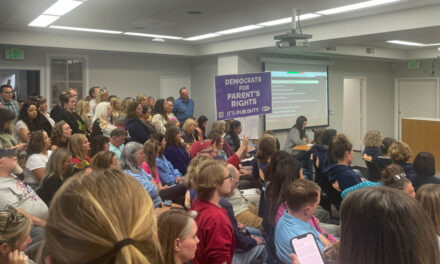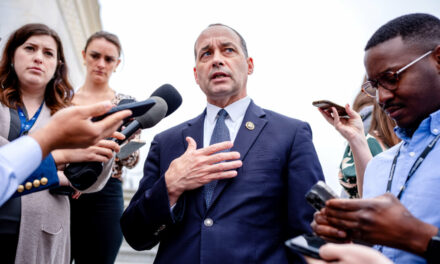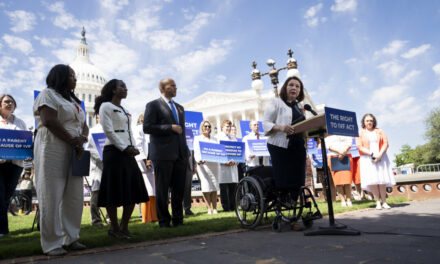We support our Publishers and Content Creators. You can view this story on their website by CLICKING HERE.
The G7 leaders expressed ‘deep concern’ about Beijing’s support for Russia’s military-industrial base.
News Analysis
BARI, Italy—The G7 summit of the world’s seven wealthy democracies concluded on June 15, showcasing unified decisions and actions that underscored their firm stance against China and Russia.
While tackling various global challenges, the leaders encountered a lot of friction over a controversial issue: how to address abortion in their communiqué, which serves as the final summit statement.
G7 leaders gathered on June 13 in the southern Italian coastal resort of Borgo Egnazia for their 50th summit.
The communiqué released this year marked a notable shift from previous years’ statements, reflecting a more assertive stance against China.
The G7 leaders expressed “deep concern” about Beijing’s support for Russia’s military-industrial base, urging China to stop transferring dual-use goods, such as weapons components and equipment, that are used by the Russian industry.
G7 leaders pledged to continue “taking measures against actors in China” that significantly help Russia’s war machine, including banks and other entities.
The communiqué demonstrated that European countries are finally willing to align with the longstanding U.S. position on China, despite their high economic dependence on the communist country. This includes a pledge to address China’s industrial overcapacity problem, which stifles innovation in Western countries.
“We will continue to take actions, as necessary and appropriate, to protect our workers and businesses from unfair practices,” the leaders said.
When asked about the reason for this shift in China policy, a senior administration official told reporters that G7 leaders now have a better understanding of Chinese head Xi Jinping’s ambition to “restore China’s dominance,” particularly in the Indo-Pacific region and potentially beyond.
Biden’s Victory
When the G7 leaders first convened, their primary focus was to agree on a plan to use frozen Russian assets to provide loans to Ukraine, a topic that garnered significant media attention. Prior to the summit, U.S. officials tried to lower expectations to avoid potential disappointment.
On the opening day of the summit, national security adviser Jake Sullivan told reporters that the United States had “put a lot of energy and effort into” the plan.
After the leaders declared that they had finally reached an agreement on the frozen Russian assets, President Biden took the opportunity to send a message to Russian President Vladimir Putin, stating, “He cannot wait us out; he cannot divide us.”
His comments were made during a joint press conference on June 13 with his Ukrainian counterpart, Volodymyr Zelenskyy.
With this deal, the technical specifics of which are still being worked out, President Biden has also had the opportunity to send a message to American taxpayers who are weary of sending billions of dollars to Ukraine. According to U.S. officials, the G7 is “making Russia pay” for the war in Ukraine, rather than taxpayers.
However, President Biden arrived at the summit empty-handed, offering no positive news on the peace plan for Gaza. He briefed G7 leaders on the ongoing negotiations during the summit. Meanwhile, he learned that Hamas had rejected an America-backed proposal.
On June 13, when reporters asked if a Gaza peace deal would be struck soon, President Biden said, “No,” adding, “I haven’t lost hope.”
During the summit, the media witnessed President Biden’s shift in mood as he criticized a reporter for asking a question about Gaza during the press conference with the Ukrainian president.
“I wish you guys would play by the rules a little bit. I’m here to talk about a critical situation in Ukraine,” he told reporters, asking them to save their Gaza-related questions for later.
In the summit’s final statement, leaders expressed unity in their support for an immediate cease-fire in Gaza, the release of all hostages, and a pathway to a two-state solution.
Abortion Contention
Despite demonstrating unity in addressing numerous global crises at the summit, one issue has fractured that unity: abortion.
Diplomatic sources leaked to the media that Italian Prime Minister Giorgia Meloni, the summit’s host, had been attempting to remove any mention of abortion from the final summit declaration.
President Biden reportedly objected to Ms. Meloni’s attempts, demanding a clear reference to “reproductive rights,” at least consistent with last year’s communiqué.
The tension became public during a press conference on June 13 when French President Emmanuel Macron, who has suffered a heavy defeat in recent EU elections, criticized the Italian government for not protecting women’s right to abortion.
In response, Ms. Meloni accused the French president of using the G7 forum as an election campaign to score political points without citing his name.
The tense relations between French and Italian leaders were evident during their handshakes at the summit, with a video of an encounter quickly going viral.
Italy’s leader managed to delete the mention of “access to safe and legal abortion” from the final statement, demonstrating her strong influence as a host.
When asked if President Biden was satisfied with the language that made it to the final statement, the official said the president “stands fully behind the language.”

 Conservative
Conservative  Search
Search Trending
Trending Current News
Current News 







